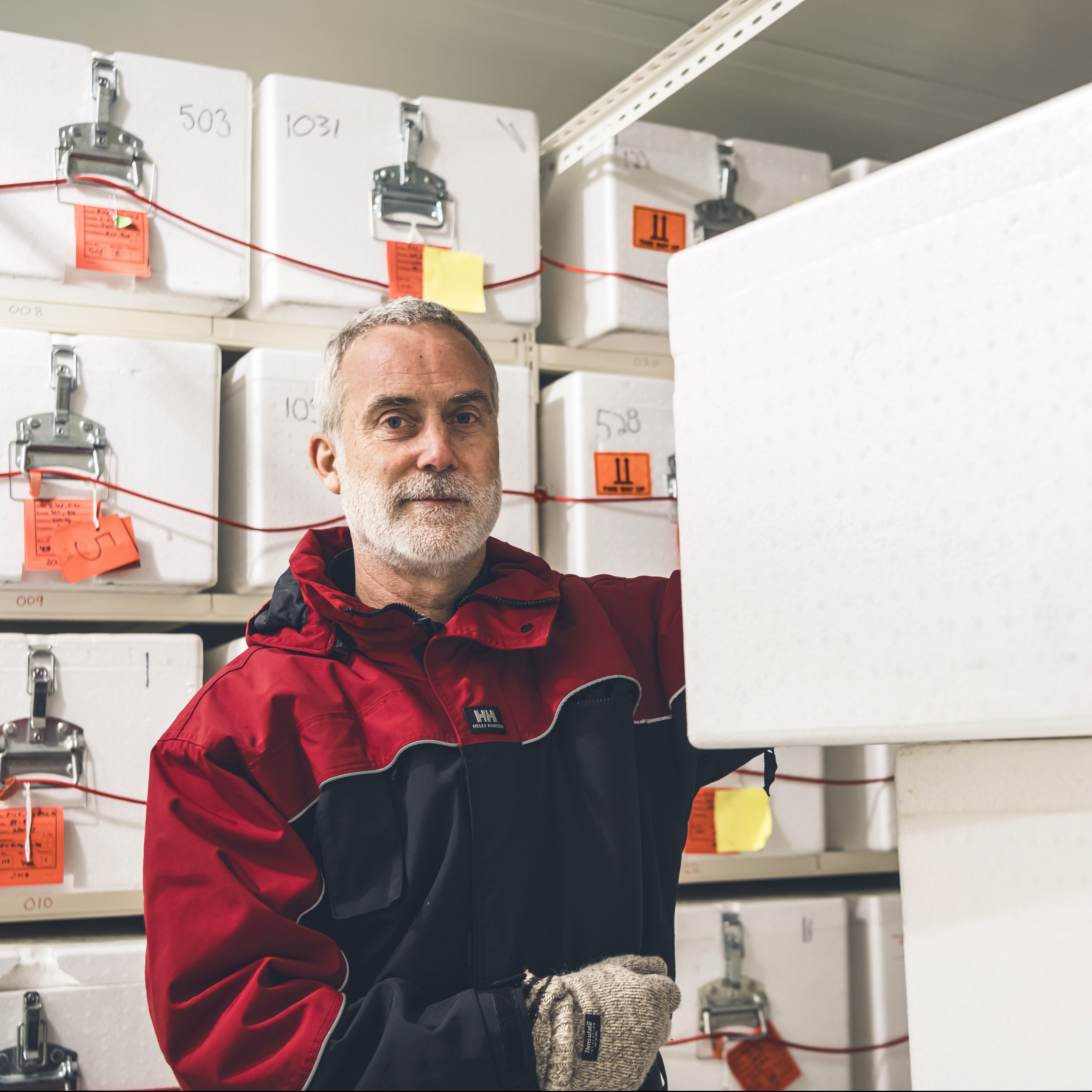Dr Richard Levy
Action and leadership are needed right now if we are to meet the challenges of climate change and build a sustainable future for our planet.
Wellington environment and climate scientist Dr Richard Levy is committed to helping us understanding global warming and lead the necessary changes.
Since his childhood days building machines from Meccano sets, Richard has been fascinated by systems. He has also thirsted for adventure and exploration.
It is therefore only natural that, decades later, he should find himself living in a tent on the ice sheets of Antarctica while leading a project to find out how climate change will cause the ice to melt and our sea levels to rise.
“Understanding the history of the planet on which we live has always fascinated me,” says Richard.
“Using fossils, using life forms that have evolved through time … it helps us to untangle that history – how it began, how it’s evolved to where we’re at now, and where we’re heading to in the future.”
Richard’s 23 years of scientific research includes more than a decade leading the Past Antarctic Climates and Future Implications programme.
As the name suggests, this work explores the distant past to help understand how warming temperatures will affect our planet in the near future. It has taught us that Antarctic ice sheets are even more dynamic and vulnerable than we previously believed.
Closer to home, Richard is also leading a project to learn how climate change and sea-level rise will affect different parts of New Zealand’s coastline.
This “super-exciting, but also quite concerning” project is geared towards practical solutions. Richard has personally connected with iwi, councils and many other people to help them understand the risks of sea-level rise and plan more resilient infrastructure.
“We’re just starting out on this journey, this adventure – working with key communities so local governments can better plan for the future,” he says.
The challenges of climate change are so great that they might seem insurmountable to many people. But Richard is optimistic about meeting these challenges and has been leading by example – he drives an electric car, for instance, and follows a vegetarian diet.
According to one of his colleagues, Professor Gary Wilson, this typifies Richard’s pragmatic style of leadership.
“Through Richard’s efforts, people are learning not only that this is important but also that they can act and make a difference,” says Gary.
“He knows that change will start at home, and he uses his own actions as talking points to engage others.”
Richard has been praised for the quality and breadth of his scientific work.
He has published dozens of peer-reviewed articles and is principal scientist at GNS Science, where he leads the environment and climate research theme.
He also leads the Antarctic Ice Dynamics Project, and is associate professor in the Antarctic Research Centre at Victoria University of Wellington.
Richard considers education to be such a crucial part of the climate challenge that he has been been studying the psychology of educating people without creating fear.
The message is starting to get through, and more governments around the world are agreeing to cut the amount of carbon dioxide going into the atmosphere.
A certain amount of warming is inevitable, says Richard, but there is still time to keep this to manageable levels by focusing on mitigation and adaptation.
“I’m much more confident that we as humans are trying to get on top of this problem,” he says.
“We’ve acknowledged it at last – and we’re actually coming up with solutions.”
These include planning ahead for environmental changes and finding new technologies so we can switch to carbon-neutral energy sources without disrupting our lives too much.
“But, gosh, we’ve got so many things still to do and I’m getting older every second,” says Richard.
“There’s still so much to do in terms of how Antarctica, for example, will respond to climate change.”
To help aid this understanding, Richard is co-leading a project in Antarctica to drill through the Ross Ice Shelf into the sediment far below.
The aim is to dig up a record of previous times when the global climate was warmer, providing clues as to whether or not the western Antarctic ice sheet collapsed or remained intact.
Richard says this work has “massive consequences for future sea level projections”.
Just as importantly, Richard wants to keep improving ways to engage with the non-scientific community.
“People are wanting to know what they might expect in the future and we’ve got to do a much better job of translating scientific knowledge into a way that is accessible to all,” he says.
Richard wants people to have an even better understanding of science and the things they can do to reduce the impacts of our lifestyles on our planet’s systems.
This applies especially to youths, who he believes must safeguard their futures by holding to account politicians, business-people and scientists.
“People across the world are tackling the problems of climate change much more seriously,” says Richard.
“I’m hopeful we’ll continue doing that and actually get on top of this challenge.”


